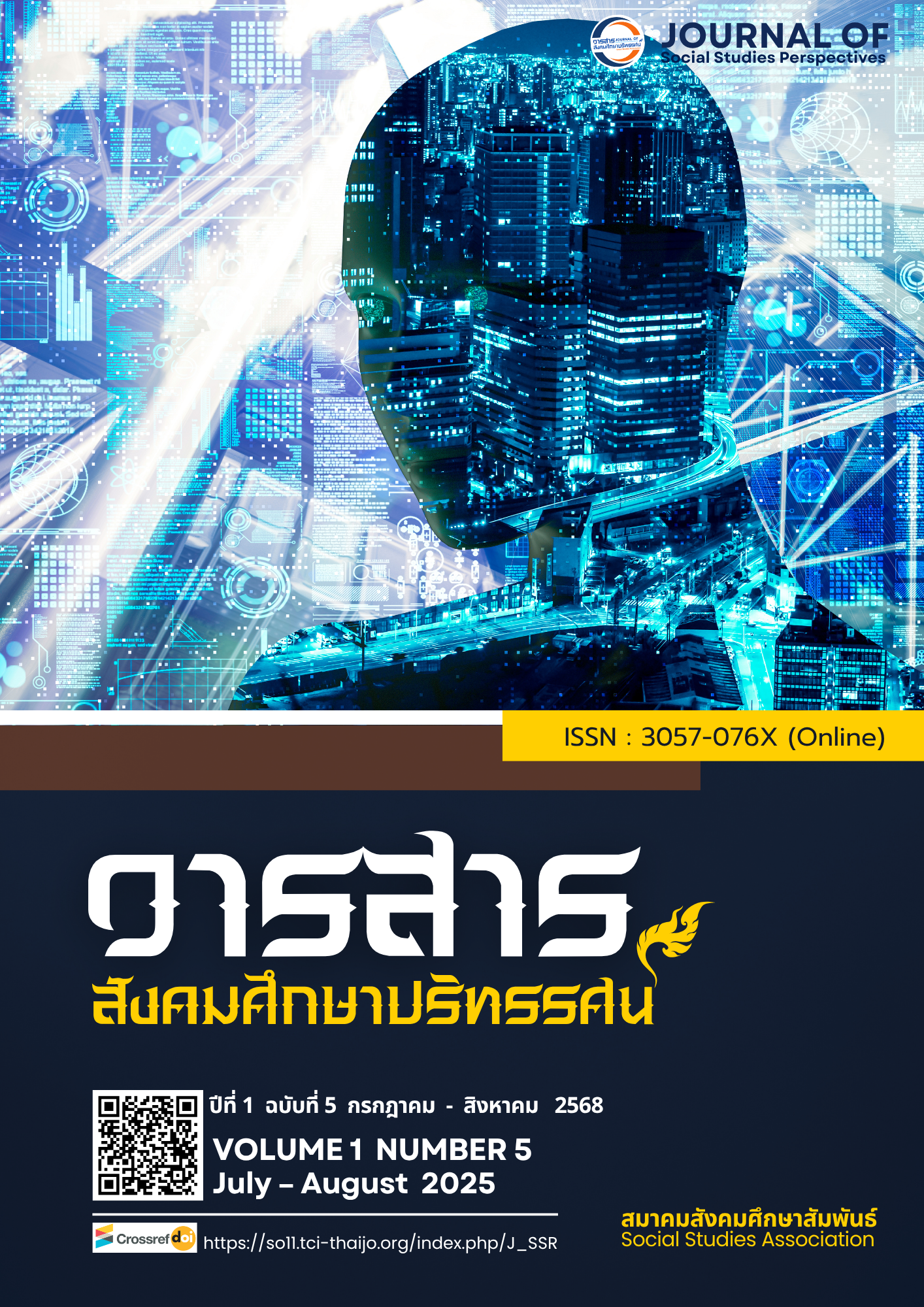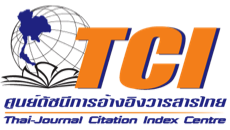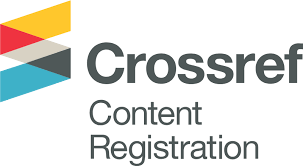Developing a Model to Enhance Social-Emotional Learning (SEL) processes for The Adjustment of High School Students in the era of Artificial Intelligence Technology. To support The Learning Society Chiang Rai Province
DOI:
https://doi.org/10.64186/jsp2499Keywords:
Social and emotional learning, Adaptation, Artificial Intelligence TechnologyAbstract
This research aims to 1) study the process of Social and Emotional Learning (SEL) and adaptation in the Artificial Intelligence (AI) era of high school students in Chiang Rai Province, in preparation for a learning society, and 2) develop a model for enhancing SEL processes for the adaptation of high school students in the AI era, to support a learning society in Chiang Rai Province. This quantitative research study utilizes the concepts of social and emotional learning and individual adaptation as a research framework. The sample consists of 400 high school students from schools in Mueang District, Chiang Rai, selected using the Taro Yamane formula. Additionally, 60 students who participated in activities to enhance the social and emotional learning (SEL) process and adaptation in the AI era, with low to moderate scores, were selected. The research tools include three instruments: 1) A social and emotional learning (SEL) measurement scale, 2) An adaptation measurement scale for the AI era, and 3) A model for enhancing social and emotional learning (SEL). Data analysis was conducted using means, standard deviations, and content analysis. The findings of the study revealed that
- The students' social and emotional learning (SEL) processes and adaptation in the AI
era were at a moderate level.
- The developed activities to enhance social and emotional learning (SEL) and adaptation
consist of five activities
- Self-awareness activity: “Reflecting on the Heart, Understanding the Self”
- Self-management activity: “Setting Goals, Moving Forward with Confidence”
- Social awareness activity: “Understanding Myself and the Society Around Me”
- Relationship skills activity: “Listening and Connecting with Understanding”
- Responsible decision-making activity: “Think Before Acting, Be Responsible for
theOutcome” Each activity lasts 2 hours. After participating in these activities, students showed an increase in their social and emotional learning (SEL) and adaptation to the AI era.
The knowledge gained from this research is that enhancing social and emotional learning (SEL) processes is crucial for students' adaptation in the AI era. The proposed activity model can be applied in schools to develop life skills and learning in a learning society. It also provides valuable information for teachers, school administrators, and educational organizations to plan for the appropriate development of learners.
References
Chomya, R. (2018). Development of a training program based on experiential learning to enhance social and emotional learning for lower secondary school students (in Thai). Ratchaphruek Journal of Humanities and Social Sciences, 13(1), 1–15.
Chusangnin, C. (2019). Artificial intelligence for learning. Institute for the Promotion of Teaching Science and Technology (IPST). Retrieved March 10, 2024, from https://www.scimath.org/article-technology/item/10110-ai-10110
Elias, M. J., Nayman, S. J., Duffell, J. C., & Kim, S. A. (2017). Madam Secretary, help us improve social-emotional learning. Phi Delta Kappan, 98(8), 64–69.
Kamphiranon, S. (2019). AI: Future technology of Thailand (in Thai). Academic Affairs, Secretariat of the Senate, 9(5), 1–10.
Office of the Education Council, Ministry of Education. (2017). National education plan (in Thai). Bangkok: Prikwan Graphic Co., Ltd.
Sakulsriphath, S. (2018). Social and emotional learning according to CASEL framework of lower secondary school students under the Office of the Basic Education Commission (in Thai). Srinakharinwirot Research and Development Journal (Humanities and Social Sciences), 10(20), 1–15.
Srisawat, K. (2024). When education meets AI: Aspects Thai education must prepare for (in Thai). Equitable Education Fund (EEF) & The 101 World.
Thientheerathamasombat, S. (2022). Development of a learning management model to promote social and emotional learning for secondary school students (in Thai) [Doctoral dissertation, Mahasarakham University].
Wongratana, C. (2015). Research proposal writing techniques: Guidelines to success (3rd ed., rev. ed.). Bangkok: Aromkarn Printing.
Weissberg, R. P., & Cascarino, J. (2013). Academic learning + social-emotional learning = national priority. Phi Delta Kappan, 95(2), 8–13.
Published
How to Cite
License
Copyright (c) 2025 Journal of social studies perspectives

This work is licensed under a Creative Commons Attribution-NonCommercial-NoDerivatives 4.0 International License.
The article is published under the Creative Commons Attribution-NonCommercial-NoDerivatives 4.0 International (CC BY-NC-ND 4.0) license, which allows others to share the article while giving appropriate credit to the author. It prohibits the use of the article for commercial purposes or the creation of derivative works. Any other reuse or reproduction requires permission from the journal.










